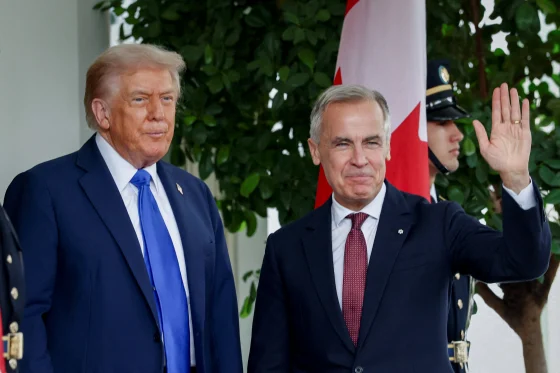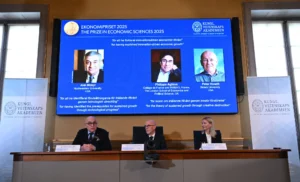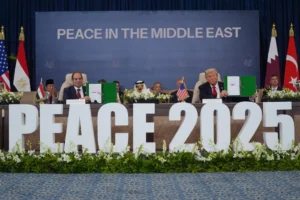Canada Sees Possible Relief from U.S. Tariffs Amid Renewed Interest in Keystone XL Pipeline Project

Washington, The Gulf Observer: Canada may soon see relief from steep U.S. tariffs on steel and aluminum following renewed interest in the long-discussed Keystone XL oil pipeline project, first proposed over 15 years ago.
According to a source with direct knowledge of the discussions, Prime Minister Mark Carney raised the issue of the Keystone XL pipeline during his meeting with U.S. President Donald Trump at the White House on Tuesday. The proposed pipeline would connect northern Alberta’s oil fields with the U.S. Midwest.
The source said that Prime Minister Carney conveyed Canada’s revived national interest in the project, and President Trump was receptive to the idea of advancing it. The renewed Canadian support for the project, which Trump has long backed, has reportedly opened the door for potential progress on easing tariffs on steel and aluminum — sectors currently facing duties as high as 50 percent.
In a joint press conference following the meeting, Canada-U.S. Trade Minister Dominic LeBlanc stated that both leaders had directed their teams to act swiftly on “priority files,” expressing optimism about concluding agreements related to steel, aluminum, and energy. However, LeBlanc did not elaborate on the energy component of the discussions.
President Trump has repeatedly voiced support for reviving the Keystone XL project, which was halted by the Obama administration, reinstated during Trump’s first term, and cancelled again by President Joe Biden in 2021. Trump recently rescinded Biden’s order revoking the pipeline permit, clearing the way for a potential new proposal. In February, Trump reiterated his stance on social media, declaring, “We want the Keystone XL Pipeline built.”
With renewed political backing from both Washington and Ottawa, the private sector may reconsider the feasibility of the $8 billion infrastructure project, initially proposed in 2008.
The revived discussion comes shortly after the Alberta government announced its own intention to pitch a new westward pipeline project through British Columbia, contingent upon federal approval. Alberta Premier Danielle Smith called it a “test” for Canada’s commitment to energy development, while B.C. Premier David Eby dismissed the proposal as “fictional,” warning it would cost taxpayers billions.
The original Keystone XL plan envisioned transporting crude oil from Hardisty, Alberta, to Nebraska, but it faced multiple hurdles in the United States, including environmental and Indigenous opposition. The Alberta government had previously invested $1.5 billion in the project before it was halted.
The company behind the original pipeline, TC Energy Corp., has since divested its oil assets into a new entity, South Bow Corp., which stated earlier this year that it has “moved on” from the project.
While the Keystone XL’s revival remains uncertain, the latest talks between Ottawa and Washington mark a potential turning point in Canada-U.S. energy and trade relations, particularly in efforts to reduce tariffs and strengthen cross-border cooperation.


